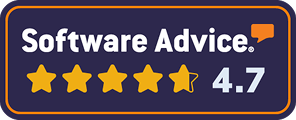Music Therapist
Resume Template
Create a winning impression with our Harvard University Approved template for Music Therapist.
Music Therapist
Resume Template
Create a winning impression with our Harvard University Approved template for Music Therapist.


Join the Course
Music Therapist Resume Sample (2025)
How to Present Your Contact Information
- Full name.
- Professional email address (avoid unprofessional ones).
- Link to your portfolio, LinkedIn, or relevant online profiles (if applicable).
- Phone number with a professional voicemail.
How to Write a Great Music Therapist Resume Summary
Compassionate and creative Music Therapist with over 5 years of experience in designing and implementing personalized music therapy sessions for diverse populations. Proven track record of enhancing patient outcomes through innovative therapeutic techniques. Skilled in client assessment, session planning, and progress evaluation, aiming to leverage expertise to contribute to a progressive healthcare facility.
What Skills to Add to Your Music Therapist Resume
Technical Skills:
- Music composition and arrangement
- Proficiency with musical instruments
- Clinical assessment techniques
- Music therapy software
Soft Skills:
- Empathy
- Active listening
- Communication
- Problem-solving
What are Music Therapist KPIs and OKRs, and How Do They Fit Your Resume?
KPIs (Key Performance Indicators):
- Improvement in patient emotional well-being
- Increase in therapy session participation rates
- Reduction in patient anxiety levels
OKRs (Objectives and Key Results):
- Develop and implement new music therapy programs for diverse patient groups
- Increase patient satisfaction ratings by 20% over the next year
- Enhance interdisciplinary collaboration to achieve holistic care outcomes
How to Describe Your Music Therapist Experience
List your experience in reverse chronological order. Focus on achievements, responsibilities, and quantifiable outcomes.
Right Example:
- Designed and conducted over 200 personalized music therapy sessions resulting in a 30% improvement in patient mood and engagement.
- Collaborated with a multidisciplinary team to integrate music therapy into patient treatment plans, increasing effectiveness by 25%.
- Trained and supervised 5 music therapy interns, leading to enhanced skills and increased program capacity.
Wrong Example:
- Played music for patients regularly.
- Worked with other staff occasionally.
- Helped interns sometimes.







